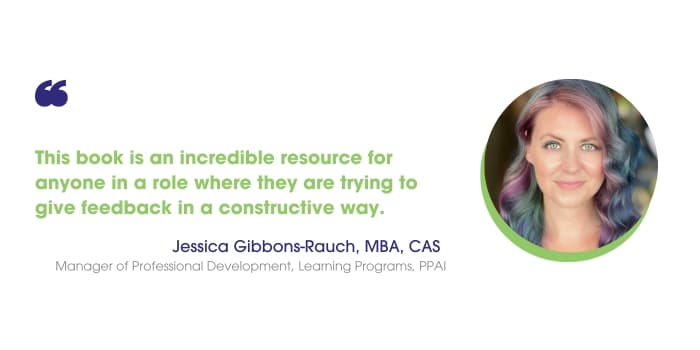Leadership can be a tightrope. You must balance showing care for those you oversee with communicating with them in a productive, effective way. Kim Scott’s Radical Candor: Be a Kick-Ass Boss Without Losing Your Humanity tackles that challenge in a way that I think anyone in a management role will value. The way the book is written is easy to absorb and can help any leader be their best self.
Why I chose this book:
When we are choosing content for PPAI events, we extensively research topics that resonate with our membership. Radical Candor was not a book I was familiar with until Lindsey Davis, MAS, PPAI’s director of sales and professional development, shared the concept with me. It factored into the planning of this month’s PPAI Women’s Leadership Conference in Nashville.
The book presents a profound exploration of leadership, offering invaluable insights for women navigating organizational structures. Scott’s work unveils the complex challenges and opportunities inherent in leadership roles, advocating for a balanced approach that integrates care and directness.
I recommend it for:
Giving feedback can be really hard, and it’s something I have struggled with. This book is an incredible resource for anyone in a role where they are trying to give feedback in a constructive way.

Key points:
Seek a balanced approach: Established leadership advice tends to skew toward a traditional concept of masculinity, and women often confront conflicting expectations of nurturing and assertiveness in the workplace. Scott encourages a balanced approach that integrates care and directness. Her model offers a strategic roadmap for navigating these dualities without sacrificing effectiveness.
Embrace vulnerability: A notable strength of Radical Candor lies in its advocacy for embracing vulnerability as a leadership asset. Scott’s encouragement to share personal narratives and frailties challenges the perception of leadership as stoic and invulnerable, fostering more authentic and inclusive leadership styles.
Build trust through relationships: The author’s emphasis on cultivating trust-based relationships underscores the significance of interpersonal interactions in leadership, especially when gender is part of the equation. Women in leadership frequently encounter skepticism and scrutiny and must establish trust through transparent communication and mutual respect. Scott’s strategies for fostering trust echo feminist theories of leadership, which prioritize collaboration and inclusivity.
Embrace inclusion: Scott also argues for recognition of diversity and inclusion as essential components of effective leadership. Acknowledging the unique challenges faced by women and marginalized groups in the workplace encourages a more inclusive perspective that can help leaders address power differentials within their organizations.
My takeaway:
Radical Candor offers not only a pragmatic leadership guide but also a critical lens through which to analyze gender dynamics in the workplace. Scott’s insights challenge traditional notions of leadership, offering women a framework for navigating power dynamics with authenticity and integrity. Through her nuanced approach, Scott contributes to the ongoing discourse on gendered leadership, advocating for a more inclusive and equitable organizational culture.
Leadership roles can take many directions and often can be high-pressure. What I love about this book is that it describes the concept of being a leader from a place of compassion and balance. It isn’t enough to provide direction – communicating how and why as well, and doing it in a way that will help rather than hinder, are incredibly useful skills.
What should I read next?
My library of business books is large, but I’m always looking to build it out. If you have any suggestions for business books that are meaningful to you, please let me know at JGR@ppai.org, and after I give it a read, I’ll share my impressions in PPAI Magazine.
Gibbons-Rauch is PPAI’s manager of professional development, learning programs.


